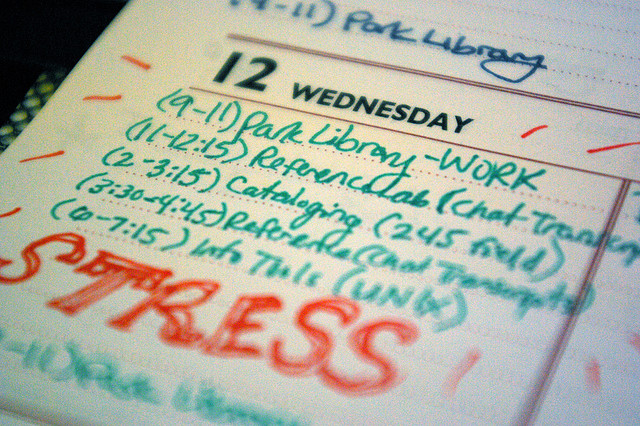Everyone experiences stress at some time or another. Stress is a feeling that comes from a physiological reaction your body has to certain events. Even though stress can be a positive thing – like motivating us to make positive changes in our lives or giving us that “extra push” for an exam, sometimes we have too much stress and begin to feel that our lives are out of balance. Too much stress may have negative consequences for your health – both physical and mental.
Managing Stress
It may not be possible to get rid of the stress altogether in your life; however managing your stress is possible. Below are some ideas for managing stress:
- Tackling the problem. The problem may not go away on its own. In fact, if you ignore the problem, it could just get worse. Once you know what the problem is, there are a number of ways you can de-stress.
- Go for a walk or run. Exercising can be a good way to relieve stress.
- Hang out with friends. This can be a great way to keep your mind off of things for a while. By talking with friends, you could realize that similar things that stress you out, also stress your friends out.
- Take some deep breaths. Deep breathing can help to relax the body and calm you down.
- Set realistic goals. Setting realistic goals and managing your time and expectations may help to reduce or manage stress.
- Have multiple paths to achieve your goals. There is never one path to achieving your goals. It is important not to put all your eggs in one basket. Everything might not always play out how you thought it would, but you might end up happy with the results.
- Try to avoid harmful behaviors. It may be tempting to use smoking, alcohol, and caffeine as a means of managing your stress. Try to avoid using these substances as a coping mechanism because, in the long run, they may make you more stressed out and can be harmful to the body.
- Watch what you’re thinking. Is your cup half full or half empty? A healthy dose of optimism can help you make the best out of stressful circumstances.
Acknowledgement: This fact sheet was originally developed by youth and staff at ReachOut.com, a website that helps teens get through tough times.


